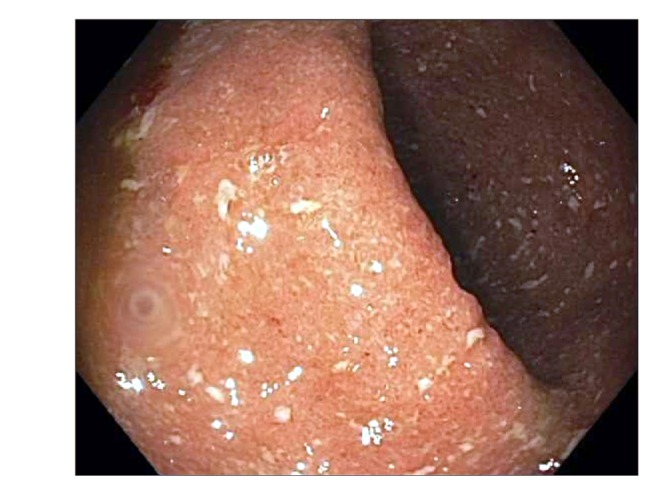1. Beaugerie L, Svrcek M, Seksik P, et al. Risk of colorectal high-grade dysplasia and cancer in a prospective observational cohort of patients with inflammatory bowel disease. Gastroenterology. 2013; 145:166–175.e8. PMID:
23541909.

2. Meyer AM, Ramzan NN, Loftus EV Jr, Heigh RI, Leighton JA. The diagnostic yield of stool pathogen studies during relapses of inflammatory bowel disease. J Clin Gastroenterol. 2004; 38:772–775. PMID:
15365403.

3. Jess T, Simonsen J, Nielsen NM, et al. Enteric Salmonella or Campylobacter infections and the risk of inflammatory bowel disease. Gut. 2011; 60:318–324. PMID:
21193449.

4. Pola S, Patel D, Ramamoorthy S, et al. Strategies for the care of adults hospitalized for active ulcerative colitis. Clin Gastroenterol Hepatol. 2012; 10:1315–1325.e4. PMID:
22835577.

5. Sartor RB. Microbial influences in inflammatory bowel diseases. Gastroenterology. 2008; 134:577–594. PMID:
18242222.

6. Schulfer AF, Battaglia T, Alvarez Y, et al. Intergenerational transfer of antibiotic-perturbed microbiota enhances colitis in susceptible mice. Nat Microbiol. 2018; 3:234–242. PMID:
29180726.

7. Ungaro R, Bernstein CN, Gearry R, et al. Antibiotics associated with increased risk of new-onset Crohn's disease but not ulcerative colitis: a meta-analysis. Am J Gastroenterol. 2014; 109:1728–1738. PMID:
25223575.

8. Högenauer C, Langner C, Beubler E, et al. Klebsiella oxytoca as a causative organism of antibiotic-associated hemorrhagic colitis. N Engl J Med. 2006; 355:2418–2426. PMID:
17151365.

9. Zollner-Schwetz I, Högenauer C, Joainig M, et al. Role of Klebsiella oxytoca in antibiotic-associated diarrhea. Clin Infect Dis. 2008; 47:e74–e78. DOI:
10.1086/592074. PMID:
18808355.
10. Sweetser S, Schroeder KW, Pardi DS. Pseudomembranous colitis secondary to Klebsiella oxytoca. Am J Gastroenterol. 2009; 104:2366–2368. PMID:
19727105.

11. Plessier A, Cosnes J, Gendre JP, Beaugerie L. Intercurrent Klebsiella oxytoca colitis in a patient with Crohn's disease. Gastroenterol Clin Biol. 2002; 26:799–800. PMID:
12434087.
12. Zollner-Schwetz I, Herzog KA, Feierl G, et al. The toxin-producing pathobiont Klebsiella oxytoca is not associated with flares of inflammatory bowel diseases. Dig Dis Sci. 2015; 60:3393–3398. PMID:
26091802.

13. Aroniadis OC, Brandt LJ, Greenberg A, et al. Long-term follow-up study of fecal microbiota transplantation for severe and/or complicated Clostridium difficile infection: a multicenter experience. J Clin Gastroenterol. 2016; 50:398–402. PMID:
26125460.

14. Jodorkovsky D, Young Y, Abreu MT. Clinical outcomes of patients with ulcerative colitis and co-existing Clostridium difficile infection. Dig Dis Sci. 2010; 55:415–420. PMID:
19255850.

15. Trnka YM, LaMont JT. Association of Clostridium difficile toxin with symptomatic relapse of chronic inflammatory bowel disease. Gastroenterology. 1981; 80:693–696. PMID:
7202941.

16. Meyers S, Mayer L, Bottone E, Desmond E, Janowitz HD. Occurrence of Clostridium difficile toxin during the course of inflammatory bowel disease. Gastroenterology. 1981; 80:697–670. PMID:
7202942.

17. Clayton EM, Rea MC, Shanahan F, et al. The vexed relationship between Clostridium difficile and inflammatory bowel disease: an assessment of carriage in an outpatient setting among patients in remission. Am J Gastroenterol. 2009; 104:1162–1169. PMID:
19319128.

18. Dorman SA, Liggoria E, Winn WC Jr, Beeken WL. Isolation of Clostridium difficile from patients with inactive Crohn's disease. Gastroenterology. 1982; 82:1348–1351. PMID:
7067956.

19. Polage CR, Gyorke CE, Kennedy MA, et al. Overdiagnosis of Clostridium difficile infection in the molecular test era. JAMA Intern Med. 2015; 175:1792–1801. PMID:
26348734.






 PDF
PDF ePub
ePub Citation
Citation Print
Print






 XML Download
XML Download